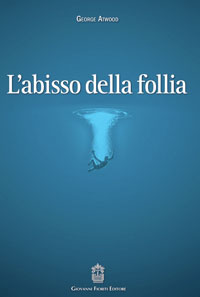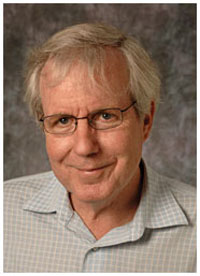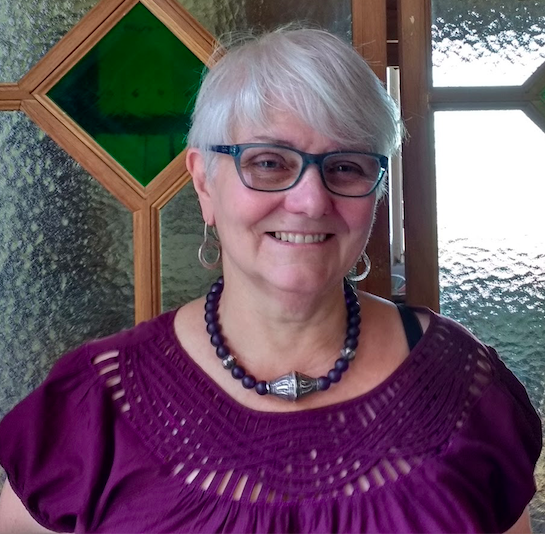By Alessia D’Alterio (Italy), Giuseppe Magistrale (Italy), and Elaine Luti (Italy)
Click here for English
 Translated by Alessia D’Alterio and Giuseppe Magistrale; edited by Elaine Luti.
Translated by Alessia D’Alterio and Giuseppe Magistrale; edited by Elaine Luti.
Le forme più gravi di sofferenza psichica non sono deviazioni da una norma prestabilita, ma il risultato di contesti relazionali traumatici, privi di responsività affettiva, comprensione, ed empatia. Forte di cinquant’anni di esperienza clinica con i pazienti comunemente considerati “gravi”, George Atwood tenta di illustrare tale prospettiva—il contestualismo fenomenologico della psicoanalisi post-cartesiana—attraverso i suoi appassionati racconti di successi e fallimenti nella psicoterapia con individui comunemente sottoposti a diagnosi e trattamento psichiatrico. La barriera che divide la salute dalla cosiddetta malattia mentale è spazzata via da Atwood proprio attraverso la comprensione dei mondi personali nascosti da queste diagnosi, che si rivelano risposte umane a contesti soggettivi che spingono verso il ciglio dell’abisso. La cosiddetta “malattia mentale” è quindi uno sforzo per la risalita, ed è proprio attraverso la comprensione del senso soggettivo di fenomeni umani che si celano dietro termini come depressione, schizofrenia, disturbo bipolare, sogni, e deliri che la cura è possibile. L’umanità è un ingrediente fondamentale per la terapia. Ciò che rende umana la possibilità di comprensione è proprio la capacità del clinico di riconoscere quanto la follia sia una possibilità che riguarda tutti noi.
Alessia D’Alterio: Ogni clinico è un portatore sano di trauma. Non siamo immuni, non siamo onnipotenti. Non possiamo permetterci di negare da dove veniamo, le nostre origini. Le nostre ferite e i nostri traumi dovrebbero essere le nostre migliori qualifiche. Siamo qualificati a comprendere il trauma perché lo abbiamo vissuto. Una paziente rivolgendosi al suo analista George Atwood, afferma: “Penso che tu sia una madre. E’ tutto qua il problema della mia analisi – il mio analista è solo un padre. Lui mi vuole sempre adulta e ragionevole”. Questa paziente coglie perfettamente il senso fondante dell’approccio intersoggettivo di Atwood: nell’essere madre di cui lei parla c’è tutta la ricchezza e la preziosità del suo approccio, la comprensione, la compassione, il profondo rispetto della fragilità dell’altro.
Elaine Luti: Atwood afferma che se gli eventi e le relazioni che sostengono le nostre vite smettessero di esistere, ognuno di noi potrebbe cadere nell’abisso della follia. Questo è sempre all’orizzonte, una costante possibilità. Entrare con la mano in quell’abisso per poter tirare fuori un paziente, richiede la capacità di trovare in noi stessi ciò che sarebbe dovuto succedere a noi per arrivare ad avere i loro sintomi e la loro sofferenza—per arrabbiarci o piangere o dimenarci come loro. È necessaria una mano forte e ferma per entrare nell’abisso e abbiamo bisogno di tutto l’aiuto possibile per farlo—Atwood ci da questo aiuto.
Giuseppe Magistrale: Il regalo di Atwood ai lettori assomiglia a un resoconto di viaggio che, per usare le sue parole, ha come destinazione “gli angoli più remoti della follia”. Se è vero che si può distinguere tra turisti e viaggiatori, possiamo dire che Atwood rientri nella seconda categoria. Un turista cammina sul suo percorso come se vedesse tutto nascosto dietro a una vetrina. Per tornare a casa più riposato di prima, giudica ciò che vede con le lenti del suo paese di origine, che per lui rappresenta la “norma” e ha paura di farsi toccare da ciò che incontra nel suo percorso, di esplorare i luoghi più pericolosi. Un viaggiatore sa che i viaggi più rischiosi sono spesso i più strabilianti, e grazie a questa consapevolezza vive i suoi passi in modo profondamente diverso, stringe un legame con ciò che vede e se cambia i percorsi delle persone che incontra, riesce a farlo soltanto grazie alla propria capacità di farsi cambiare dai percorsi che intraprende. Quando torna, anche la sua dimora interiore cambia per sempre. Viaggiare è comprendere e ogni nuova comprensione di ciò che è altro da noi implica necessariamente una riscoperta di noi stessi.
Circa l’autore, traduttori, e redattore:
 George Atwood, PhD, è professore alla Rutgers University, Membro fondatore dell’ Institute for the Psychoanalytic Study of Subjectivity if New York, Membro onorario APA e autore di numerosi articoli e volumi.
George Atwood, PhD, è professore alla Rutgers University, Membro fondatore dell’ Institute for the Psychoanalytic Study of Subjectivity if New York, Membro onorario APA e autore di numerosi articoli e volumi.
 Alessia D’Alterio, è psicologa clinica dell’infanzia, dell’adolescenza e della famiglia. E’ psicoterapeuta in training presso ISIPSè. Ha lavorato per diversi anni come psicodiagnosta in campo legale e come psicologa clinica presso organizzazioni che offrono assistenza psicologica a soggetti a fragilità economica. Ha collaborato con DAI (Disturbi Alimentari in Istituzione), parte di FIDA, Federazione Italiana Disturbi Alimentari. Esercita privatamente dal 2013.
Alessia D’Alterio, è psicologa clinica dell’infanzia, dell’adolescenza e della famiglia. E’ psicoterapeuta in training presso ISIPSè. Ha lavorato per diversi anni come psicodiagnosta in campo legale e come psicologa clinica presso organizzazioni che offrono assistenza psicologica a soggetti a fragilità economica. Ha collaborato con DAI (Disturbi Alimentari in Istituzione), parte di FIDA, Federazione Italiana Disturbi Alimentari. Esercita privatamente dal 2013.
– Via Tuscolana 590
00181 Roma Italy
Email Alessia D’Alterio
 Giuseppe Magistrale, è psicologo clinico, psicoterapeuta in training presso ISIPSè. Ha collaborato come ricercatore in neuroscienze con la Fondazione Santa Lucia. Attualmente lavora presso ABA (Associazione Bulimia Anoressia) a Bari.
Giuseppe Magistrale, è psicologo clinico, psicoterapeuta in training presso ISIPSè. Ha collaborato come ricercatore in neuroscienze con la Fondazione Santa Lucia. Attualmente lavora presso ABA (Associazione Bulimia Anoressia) a Bari.
– Via Andrea da Bari 128
70121Bari Italy
Email Giuseppe Magistrale
 Elaine Luti lavora come psicoterapeuta presso il suo studio privato, è membro dell’ Istituto ISIPSè, docente alla John Cabot University a Roma e al Barbieri Center Rome program of Trinity College, responsabile del Counseling alla John Cabot University.
Elaine Luti lavora come psicoterapeuta presso il suo studio privato, è membro dell’ Istituto ISIPSè, docente alla John Cabot University a Roma e al Barbieri Center Rome program of Trinity College, responsabile del Counseling alla John Cabot University.
– Via Umberto Biancamano 35
00185 Roma Italy
Email Eliane Luti
![]()
L’abisso della follia:
Italian Translation of The Abyss of Madness by George Atwood
By Alessia D’Alterio (Italy), Giuseppe Magistrale (Italy), and Elaine Luti (Italy)
clicca qui per italiania
 Translated by Alessia D’Alterio and Giuseppe Magistrale; edited by Elaine Luti.
Translated by Alessia D’Alterio and Giuseppe Magistrale; edited by Elaine Luti.
The most severe forms of psychological suffering are not deviations from a pre-established norm, but are the result of traumatic relational contexts that lack affective responsiveness, understanding, and empathy. With fifty years of clinical experience with patients commonly considered “severe,” George Atwood tries to illustrate this perspective—the phenomenological contextualism of post-Cartesian psychoanalysis—through his passionate stories of successes and failures in psychotherapy with people usually subject to psychiatric diagnoses and treatments. The boundary between health and so-called mental illness is swept away by Atwood through the understanding of the personal worlds hidden by these diagnoses, revealing human responses and subjective contexts that push a person toward the edge of the abyss. So-called mental illness is thus an attempt to climb out of that abyss, and it is through the understanding of the subjective meaning of the human phenomena that hide behind terms like depression, schizophrenia, bipolar disorder, dreams, and delusions, that treatment is possible. Humanity is a fundamental ingredient for therapy. What makes therapeutic understanding possible is precisely the capacity of the clinician to recognize how madness is a possibility for every one of us.
Alessia D’Alterio: Every clinician is a healthy carrier of trauma. We are not immune; we are not omnipotent. We can’t allow ourselves to deny our origins, where we come from. Our wounds and our traumas are our best qualifications; we are qualified to understand trauma because we have experienced it. A patient seeing another analyst consults with Atwood, saying, “I think you are a mother. That’s the problem in my analysis—my analyst is only a father. He always wants me to be grown up and reasonable.” This patient grasped perfectly the founding principles of Atwood’s intersubjective approach: in being the mother that she describes we find all the richness and great value of his approach, including the understanding, the compassion, and the deep respect for the fragility of the other.
Elaine Luti: Atwood says that if the events and the relationships that sustain us in our lives were to cease to exist, any one of us could fall into the abyss of madness. This is always on the horizon, a constant possibility. Reaching a hand into that abyss to pull out a patient requires finding in ourselves what it is we would have had to experience in order to have their symptoms and their suffering, to rage or wail or thrash as they do. It takes a strong and steady hand to reach into the abyss and we need all the help we can get to do it. Atwood gives us that help.
Giuseppe Magistrale: Atwood’s gift to the reader is like the account of a journey that, to use his words, has as its destination “the far reaches of madness.” If it is true that we can distinguish between tourists and travelers, we could say that Atwood is in the second of these categories. A tourist goes on his way as if he sees everything from behind glass. To return home more rested than when he left, he judges what he sees with the lenses of his country of origin, which for him represents the “norm.” He is afraid to let himself be touched by what he encounters in his travels or to explore the more dangerous places. A traveler knows that the most risky journeys are often the most amazing, and, thanks to this awareness, he experiences his travels in a way that is profoundly different. He connects with what he sees and, if he is able to change the path of the people he encounters, he does it only thanks to his own ability to let others change the paths he himself set out on. When he returns, even his own internal abode has changed forever. To travel is to understand, and every new understanding of what is different from ourselves necessarily implies a rediscovery of ourselves.
About the Author, Translators, and Editor:
 George Atwood, PhD, is a professor emeritus at Rutgers University, a founding member of the Institute for the Psychoanalytic Study of Subjectivity in New York, an honorary member of the APA, and the author of numerous articles and books.
George Atwood, PhD, is a professor emeritus at Rutgers University, a founding member of the Institute for the Psychoanalytic Study of Subjectivity in New York, an honorary member of the APA, and the author of numerous articles and books.
 Alessia D’Alterio is a clinical psychologist working with children, adolescents, and families. She is a psychotherapist in training at ISIPSè, the Institute of Specialization in Psychoanalytic Psychology of the Self and Relational Psychoanalysis, in Rome. She worked for several years as a psychodiagnostician in the legal field and as a clinical psychologist at a non-profit organization that offers psychological assistance to low-income clients. She has collaborated with the Association DAI (Disturbi Alimentari in Istituzione), part of the Italian Federation of Eating Disorders (FIDA). She has worked in private practice in Rome since 2013.
Alessia D’Alterio is a clinical psychologist working with children, adolescents, and families. She is a psychotherapist in training at ISIPSè, the Institute of Specialization in Psychoanalytic Psychology of the Self and Relational Psychoanalysis, in Rome. She worked for several years as a psychodiagnostician in the legal field and as a clinical psychologist at a non-profit organization that offers psychological assistance to low-income clients. She has collaborated with the Association DAI (Disturbi Alimentari in Istituzione), part of the Italian Federation of Eating Disorders (FIDA). She has worked in private practice in Rome since 2013.
– Via Tuscolana 590
00181 Roma Italy
Email Alessia D’Alterio
 Giuseppe Magistrale is a clinical psychologist. He is a psychotherapist in training at ISIPSè, the Institute of Specialization in Psychoanalytic Psychology of the Self and Relational Psychoanalysis, in Rome. He has collaborated as researcher in neuroscience with Fondazione S. Lucia. He works in private practice in Bari at the ABA (Associazione Bulimia Anoressia).
Giuseppe Magistrale is a clinical psychologist. He is a psychotherapist in training at ISIPSè, the Institute of Specialization in Psychoanalytic Psychology of the Self and Relational Psychoanalysis, in Rome. He has collaborated as researcher in neuroscience with Fondazione S. Lucia. He works in private practice in Bari at the ABA (Associazione Bulimia Anoressia).
– Via Andrea da Bari 128
70121Bari Italy
Email Giuseppe Magistrale
 Elaine Luti is a psychotherapist in private practice, a member of the ISIPSè Psychoanalytic Institute in Rome, an assistant professor at John Cabot University in Rome and at the Barbieri Center Rome program of Trinity College, and Head of Counseling at John Cabot University.
Elaine Luti is a psychotherapist in private practice, a member of the ISIPSè Psychoanalytic Institute in Rome, an assistant professor at John Cabot University in Rome and at the Barbieri Center Rome program of Trinity College, and Head of Counseling at John Cabot University.
– Via Umberto Biancamano 35
00185 Roma Italy
Email Eliane Luti

